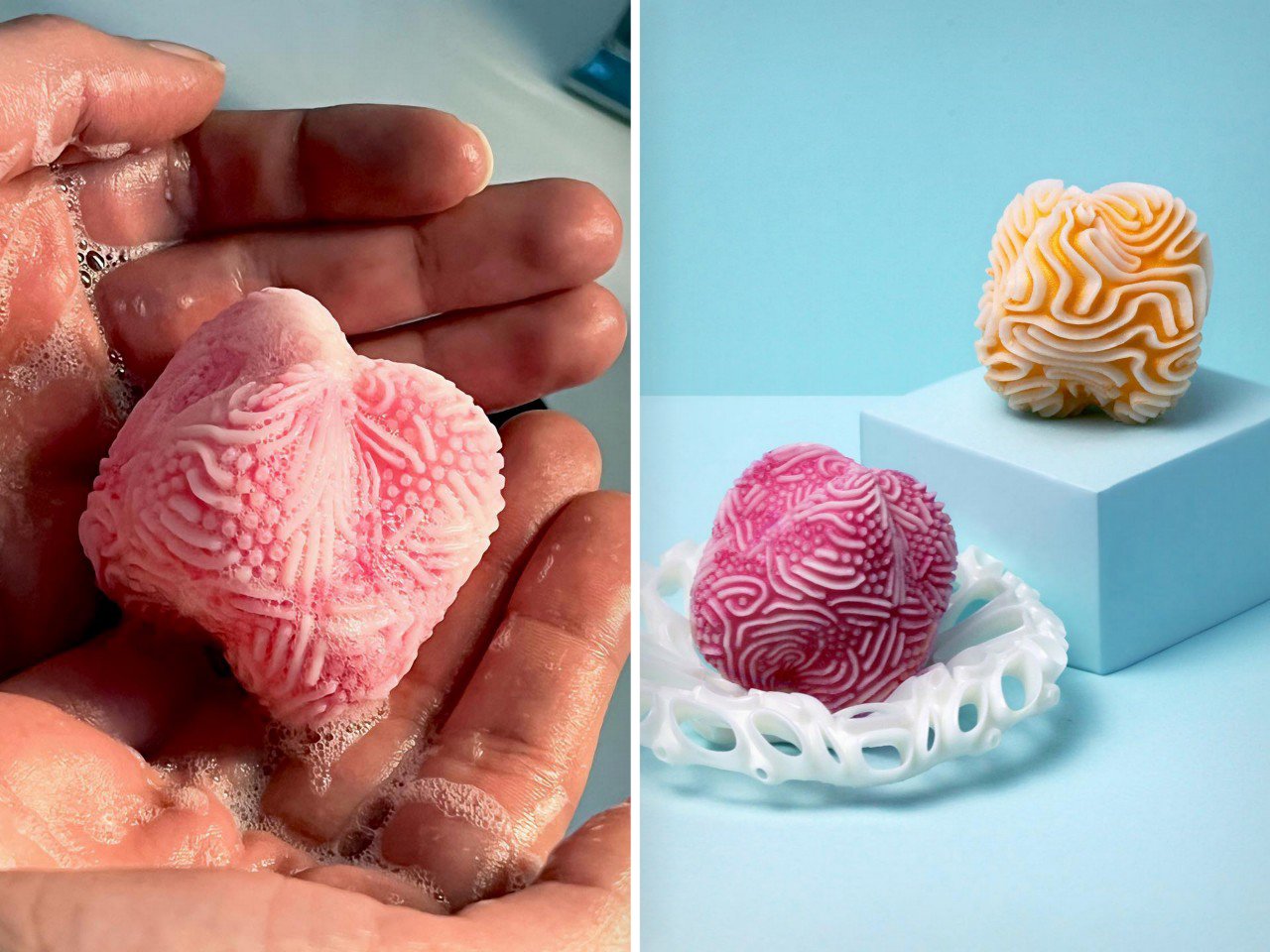When was the last time you actually looked at your soap? I mean really looked at it, considering its form, texture, and the experience it creates? Most of us grab whatever rectangular or oval blob sits in the supermarket aisle, use it until it’s a slippery, sad remnant, and repeat. The humble bar of soap has remained virtually unchanged for centuries, a victim of our collective design indifference. Most soaps are shaped like either pebbles or rectangles, and very rarely do you see them in novelty forms (remember that tetrapod-shaped soap from 2018?), but genuine innovation in this space is rarer than a clean bathroom at a music festival. That’s why Microbi Design’s new Coral Soaps collection stopped me mid-scroll and forced me to reconsider everything I thought I knew about this everyday object. Created by scientific designer Laura Maria Gonzalez, these soaps transform a mundane hygiene product into a tactile experience that marries computational design with biological inspiration.
Gonzalez’s Coral Soaps collection shatters the mundane paradigm with forms that could easily be mistaken for specimens in a marine biologist’s laboratory rather than something you’d lather up with. Available in vibrant pinks, soft yellows, and mint greens, these aren’t soaps so much as they are handheld sculptures, each bearing intricate ridges and valleys that mimic the elaborate structures of coral reefs. The collection features three distinct patterns, each inspired by specific coral species like Leptoria, Platygyra, and Agaricia. These aren’t arbitrary aesthetic choices; they’re direct translations of nature’s own problem-solving designs, applied to an object we interact with multiple times daily. The result transforms a forgettable bathroom staple into a tactile artpiece that your eyes, nose, and skin will simultaneously love.
Designer: Microbi Design (Laura Maria Gonzalez)
What makes these soaps revolutionary lies in their creation process. Unlike conventional soap design, which typically involves simple molding techniques, Microbi Design employs computational algorithms that digitally “grow” these forms. The design team uses parametric modeling software to simulate natural growth patterns, allowing the soap’s structure to develop according to mathematical rules similar to those governing actual coral formation. This generative approach means each ridge and furrow serves both aesthetic and functional purposes. The soap’s deep texture increases surface area for better lathering, while the ridges provide gentle exfoliation against skin. Water channels formed by the pattern help the soap drain efficiently, eliminating that gooey mess your average soap becomes if it just sits languishing in its soapwater.
The complementary soap dish looks just as otherworldly. Its latticed, organic structure resembles a cross-section of bone or coral skeleton, featuring an intricate network of openings. Created using similar generative design principles, the dish allows air circulation from all angles, helping the soap dry completely between uses. The dish’s parametrically optimized form strikes a perfect balance between structural integrity and negative space. This isn’t merely a soap holder; it’s an engineering solution disguised as bathroom decor, solving the age-old problem of soggy soap while maintaining visual harmony with the soap itself.
The implications extend far beyond your bathroom sink. Microbi Design’s approach demonstrates how computational design tools can transform even the most overlooked everyday objects. By applying complex algorithms to simple products, designers can optimize both form and function simultaneously, creating objects that work better while looking extraordinary (these generatively designed cups are yet another example). The Coral Soaps collection proves that when designers challenge assumptions about familiar objects, the results can be transformative. Available in three colors (pink, yellow-orange, and mint green) and priced at $24 for a soap and dish set, these soaps represent a future where even the most mundane items in our lives aren’t taken for granted.
The post These Coral-inspired Soaps were designed by Algorithms that mimic Nature first appeared on Yanko Design.

